Strictly Personal
Who poisoned the communion? By Sam Omatseye
Published
2 years agoon
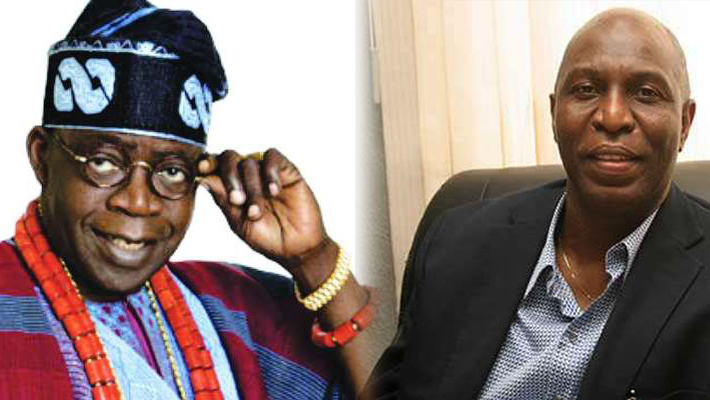
Some say they can’t vote for him because he is ill. But it’s because he makes them ill at ease. They tremble at the compass of his mind and the stature of his legacy. With affectionate defiance on Saturday night, he asked the Kano business community, “Do I look like someone who is sick to you?” He then pointed his finger to his skull, and quipped, “It’s because I am smarter than all of them.” He permitted himself a little swagger.
Asiwaju Bola Tinubu was still floating on the after-waves of ideas at the Arewa Consultative Forum. All who attended attested to his magisterial performance. Not the hegemonic effluvia of Atiku or the incantatory void of Obi. Asiwaju left the place with food for the Nigerian thought when he tackled the question of climate change.
The images of “church rat” and “poisoned holy communion” ruffled quite a few cassocks and their political hangers-on. They mistook it for a cannon against the canon. They claimed he had breached the holy of holies. He was turning the scriptures upside down. How could the holy communion be poisoned? It is holy, and so Tinubu had touched the unclean thing.
They were invoking Christ where he did not invite them. But Christ told them, “I never knew you.” They saw visions without eyes of understanding. The blind leading the blind.
For those who know the Bible, even the holy communion can kill. Hence Apostle Paul said, those who are not worthy should not take it or they will die. So, if we look at what the Catholics call the Eucharist, it is like poison to a defiled soul. The sinner who goes to the bowl with malice takes a poisoned chalice, ditto the adulterous appetite. They may swallow sweet poison. It is a holy death.
The communion then can also stand for purity, including the men of the altar. If prophets can lie and sully the word of God, so can they dispense a poisoned holy communion. It is all within us as humans, whether pastor or laity, to abide by the word. A pure holy communion is no guarantee. It depends on both laity and pastor. A compromised pulpit poisons the communion. A sinful laity courts damnation. Hence Jesus said, when the blind leads the blind, BOTH shall fall into the ditch. Jesus knew this, so he warned of the distinction between his bread and wine and the manna in the wilderness. Those who ate manna in the wilderness later died. His own will give eternal life. So, it is not about the holy communion but who poisoned it and who agreed to eat it. Tinubu says it is the west who added the killing vial. The church rat should not die for the sins of a wayward priest. The west is the priest.
Partisans who know little scripture aped the lead of these vain ecclesiastics. Beware of false prophets.
But what Tinubu was doing had nothing to do with holy matters. But he is asking if we are ready for the manna of the wilderness or the bread of life. He borrowed them as metaphors to show that we are stewards of God’s earth, but we are not subjects but sovereigns as Nigerians. The metaphor of poison is not new. We have the metaphor of poisoned chalice, poison mercury, poison oak, or Poison Ivy. Some are biological and they can, with imagination, become metaphors that picture human experience.
The poisoned holy communion here is the compromised climate or earth. We are the church rat, the innocents who would live but are confronted by the prospect of poison. But what shall we do? We are not compelled, according to Tinubu, to eat the white man’s poison. The world was pristine before the whites began pillaging it. But in doing so, they became rich.
Now, they are affecting climate remorse, and want the whole world, including us, to save the earth from the devastation of industrial man.
But in making their prosperity, they created an unequal world. They enjoy, we toil. Now, says Tinubu, we need to develop and go through the path they followed, so we too can enjoy. But they say no. The world is fragile. It faces apocalypse. No problem, says Tinubu, we can see it ourselves. We want to be rich, too. If they want us not to follow their path, if they don’t want us to burn fuel as they did, attack the ozone layer as they did, let flood wreck us and our rivers and ponds run dry as we are experiencing, let them pay us. If not, we shall, as church rats, do what we shall and allow the holy communion – the earth – to remain a poison. The earth is ours and we all can either perish together or save it together. Know that the church rat is there when the congregation is at home. On Sundays, the poisoned holy communion can kill the whole church with all of them dressed in fancy clothes and stuffed with billionaire offerings. All, both church rat and cassock man, will die. It’s like a terrorist that lobs in a bomb during mass.
Tinubu was exposing western hypocrisy. They have, in the words of poet Alexander Pope, raped the lock. It cannot easily be restored to its original beauty. This is not the first time Tinubu has mused this issue. It is a call to climate and environmental nationalism. What the west is doing is climate imperialism.
We all want good earth. But let us enjoy it equally. The west has been at odds with China over this. Premier Xi is saying what Tinubu is saying. Let us all be rich. They wasted our earth to make them rich. Tinubu knows the value of saving the earth. Before this era of flood fury, Lagos had it decades ago, and Tinubu, as Lagos State governor, confronted the Obj administration that splurged N4 billion a year to pour sands on the Bar Beach. It was a patchwork, not a solution. The thing was eating up Victoria Island like termites. Tinubu developed an idea to turn disaster into prosperity. Today, that swath of earth known as Eko Atlantic makes more money than many states put together. Even the United States is building its biggest embassy on the Eko Atlantic.
But the west must allow us to do it on our own terms. This is no colonial era. When the west started with the industrial revolution, they did not prioritise saving the planet. William Wordsworth, known as the high priest of nature, wrote: “The world is too much with us; late and soon,/ Getting and spending, we lay waste our powers;/Little we see in Nature that is ours;/We have given our hearts away, a sordid boon!”
What Tinubu has done is to stake an idea for economic prosperity and diplomatic tour de force in one phrase. Shakespeare says, “brevity is the soul of wit.”
This is the third lie of the west. The first was what is known as the Treaty of Westphalia at the end of the Thirty Years’ War. It was the genesis of international rule of law. The agreement was to recognize all nations as equal and no one should invade another without cause. It is still a fraught issue as Henry Kissinger tackles the subject in his book, World Order. Same Europe did not even recognize other continents, like African kingdoms, as sovereign. It led to the second lie: they invaded African kingdoms and raided for slaves to build the prosperity of the west. They couched us as savages and societies without civilization. It justified the invasion. Even the Church of England said we had no soul. Yet they sent us the Mary Slessors.
What they are doing now by asking us to abide by climate change is the same as they did when they started industrialism. It was then they knew slavery was inhuman. They stopped it for cynical reasons. To quote again my late teacher, Professor Tunji Oloruntimehin: “The abolition of the slave trade was an act of enlightened self-interest by the Europeans to give the Africans a new role in the international economic system.” Again, they decided to give us our nations, according to their lights. They jumbled peoples together without symmetry of culture and history. Yet, there was no concept of Europe until about the 5th century as the Roman Empire began its decline, and savage tribes invade each other like the Germanic tribes. The west is like the gang leader who becomes a priest because he needs quiet to enjoy his loot.
Climate change is their new apology. They can pay us if we insist, says Tinubu. In the US today, farmers are paid not to farm. The food will waste, so they get paid to do nothing beyond the nation’s capacity. They did not hurt the American farmer. But they hurt us for centuries and this may be Asiwaju’s way of asking for reparations while we heal the earth. As Shakespeare wrote in his play of international intrigue, Antony and Cleopatra, we can make “fancy outwork nature.”
That is Tinubu’s conundrum, a laconic riddle that we expect only from the lips of a genius. He is a financial expert but he has used language that turns professors of literature into their altar.
We can see why they fear Tinubu, and so hate him. He is the one asking the right questions.
You may like
-
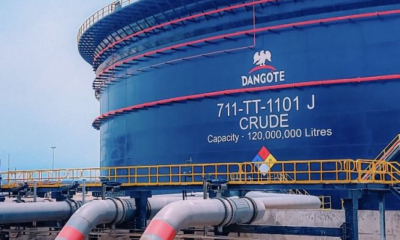

Nigeria’s Dangote refinery set to get valid operating licence
-


In 30 years, half of Nigerian biscuit companies went out of business— Manufacturers
-
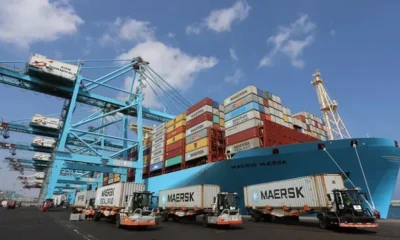

Nigeria gets $600 million investment from Danish firm Moller-Maersk
-
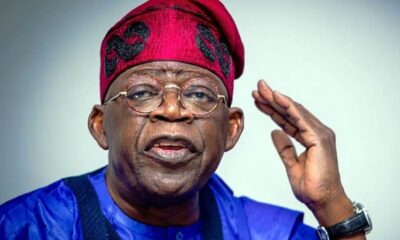

I saved Nigeria from bankruptcy by removing fuel subsidy— Tinubu
-


Behind the News: All the backstories to our major news this week
-
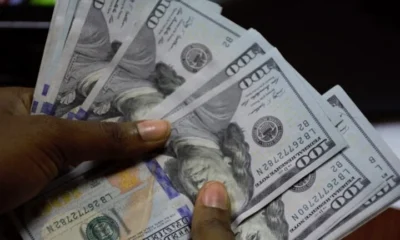

Nigeria: Bureaux De Change operators to harmonise retail FX market
Strictly Personal
This Sudan war is too senseless; time we ended it, By Tee Ngugi
Published
3 days agoon
April 28, 2024
Why are the Sudanese Armed Forces (SAF) and the paramilitary Rapid Support Forces (RPF) engaged in a vicious struggle? It is not that they have ideological, religious or cultural differences.
Not that people should fight because of these kinds of differences, but we live in a world where social constructions often lead to war and genocide. It is not that either side is fighting to protect democracy. Both sides were instruments of the rapacious dictatorship of Omar el-Bashir, who was overthrown in 2019.
Both are linked to the massacres in Darfur during Bashir’s rule that led to his indictment by the International Criminal Court for crimes against humanity. They both stood by as ordinary, unarmed people took to the streets and forced the removal of the Bashir regime.
None of these entities now fighting to the last Sudanese citizen has any moral authority or constitutional legitimacy to claim power. They both should have been disbanded or fundamentally reformed after the ouster of Bashir.
The SAF and the RSF are fighting to take over power and resources and continue the repression and plunder of the regime they had supported for so long. And, as you can see from news broadcasts, they are both well-versed in violence and plunder.
Since the fighting began in 2023, both sides have been accused of massacres that have left more than 30,000 people dead. Their fighting has displaced close to 10 million people. Their scramble for power has created Sudan’s worst hunger crisis in decades. Millions of refugees have fled into Chad, Ethiopia and South Sudan.
The three countries are dubious places of refuge. Chad is a poor country because of misrule. It also experiences jihadist violence. Ethiopia is still simmering with tensions after a deadly inter-ethnic war.
And South Sudan has never recovered from a deadly ethnic competition for power and resources. African refugees fleeing to countries from which refugees recently fled or continue to flee sums up Africa’s unending crisis of governance.
Africa will continue to suffer these kinds of power struggles, state failure and breakdown of constitutional order until we take strengthening and depersonalising our institutions as a life and death issue. These institutions anchor constitutional order and democratic process.
Strong independent institutions would ensure the continuity of the constitutional order after the president leaves office. As it is, presidents systematically weaken institutions by putting sycophants and incompetent morons in charge. Thus when he leaves office by way of death, ouster or retirement, there is institutional collapse leading to chaos, power struggles and violence. The African Union pretends crises such as the one in Sudan are unfortunate abnormally. However, they are systemic and predictable. Corrupt dictatorships end in chaos and violence.
Tee Ngugi is a Nairobi-based political commentator.
Strictly Personal
Air Peace, capitalism and national interest, By Dakuku Peterside
Published
2 weeks agoon
April 16, 2024
Nigerian corporate influence and that of the West continue to collide. The rationale is straightforward: whereas corporate activity in Europe and America is part of their larger local and foreign policy engagement, privately owned enterprises in Nigeria or commercial interests are not part of Nigeria’s foreign policy ecosystem, neither is there a strong culture of government support for privately owned enterprises’ expansion locally and internationally.
The relationship between Nigerian businesses and foreign policy is important to the national interest. When backing domestic Nigerian companies to compete on a worldwide scale, the government should see it as a lever to drive foreign policy, and national strategic interest, promote trade, enhance national security considerations, and minimize distortion in the domestic market as the foreign airlines were doing, boost GDP, create employment opportunities, and optimize corporate returns for the firms.
Admitted nations do not always interfere directly in their companies’ business and commercial dealings, and there are always exceptions. I can cite two areas of exception: military sales by companies because of their strategic implications and are, therefore, part of foreign and diplomatic policy and processes. The second is where the products or routes of a company have implications for foreign policy. Air Peace falls into the second category in the Lagos – London route.
Two events demonstrate an emerging trend that, if not checked, will disincentivize Nigerian firms from competing in the global marketplace. There are other notable examples, but I am using these two examples because they are very recent and ongoing, and they are typological representations of the need for Nigerian government backing and support for local companies that are playing in a very competitive international market dominated by big foreign companies whose governments are using all forms of foreign policies and diplomacy to support and sustain.
The first is Air Peace. It is the only Nigerian-owned aviation company playing globally and checkmating the dominance of foreign airlines. The most recent advance is the commencement of flights on the Lagos – London route. In Nigeria, foreign airlines are well-established and accustomed to a lack of rivalry, yet a free-market economy depends on the existence of competition. Nigeria has significantly larger airline profits per passenger than other comparable African nations. Insufficient competition has resulted in high ticket costs and poor service quality. It is precisely this jinx that Air Peace is attempting to break.
On March 30, 2024, Air Peace reciprocated the lopsided Bilateral Air Service Agreement, BASA, between Nigeria and the United Kingdom when the local airline began direct flight operations from Lagos to Gatwick Airport in London. This elicited several reactions from foreign airlines backed by their various sovereigns because of their strategic interest. A critical response is the commencement of a price war. Before the Air Peace entry, the price of international flight tickets on the Lagos-London route had soared to as much as N3.5 million for the economy ticket. However, after Air Peace introduced a return economy class ticket priced at N1.2 million, foreign carriers like British Airways, Virgin Atlantic, and Qatar Airways reduced their fares significantly to remain competitive.
In a price war, there is little the government can do. In an open-market competitive situation such as this, our government must not act in a manner that suggests it is antagonistic to foreign players and competitors. There must be an appearance of a level playing field. However, government owes Air Peace protection against foreign competitors backed by their home governments. This is in the overall interest of the Nigerian consumer of goods and services. Competition history in the airspace works where the Consumer Protection Authority in the host country is active. This is almost absent in Nigeria and it is a reason why foreign airlines have been arbitrary in pricing their tickets. Nigerian consumers are often at the mercy of these foreign firms who lack any vista of patriotism and are more inclined to protect the national interest of their governments and countries.
It would not be too much to expect Nigerian companies playing globally to benefit from the protection of the Nigerian government to limit influence peddling by foreign-owned companies. The success of Air Peace should enable a more competitive and sustainable market, allowing domestic players to grow their network and propel Nigeria to the forefront of international aviation.
The second is Proforce, a Nigerian-owned military hardware manufacturing firm active in Rwanda, Chad, Mali, Ghana, Niger, Burkina Faso, and South Sudan. Despite the growing capacity of Proforce in military hardware manufacturing, Nigeria entered two lopsided arrangements with two UAE firms to supply military equipment worth billions of dollars , respectively. Both deals are backed by the UAE government but executed by UAE firms.
These deals on a more extensive web are not unconnected with UAE’s national strategic interest. In pursuit of its strategic national interest, India is pushing Indian firms to supply military equipment to Nigeria. The Nigerian defence equipment market has seen weaker indigenous competitors driven out due to the combination of local manufacturers’ lack of competitive capacity and government patronage of Asian, European, and US firms in the defence equipment manufacturing sector. This is a misnomer and needs to be corrected.
Not only should our government be the primary customer of this firm if its products meet international standards, but it should also support and protect it from the harsh competitive realities of a challenging but strategic market directly linked to our national military procurement ecosystem. The ability to produce military hardware locally is significant to our defence strategy.
This firm and similar companies playing in this strategic defence area must be considered strategic and have a considerable place in Nigeria’s foreign policy calculations. Protecting Nigeria’s interests is the primary reason for our engagement in global diplomacy. The government must deliberately balance national interest with capacity and competence in military hardware purchases. It will not be too much to ask these foreign firms to partner with local companies so we can embed the technology transfer advantages.
Our government must create an environment that enables our local companies to compete globally and ply their trades in various countries. It should be part of the government’s overall economic, strategic growth agenda to identify areas or sectors in which Nigerian companies have a competitive advantage, especially in the sub-region and across Africa and support the companies in these sectors to advance and grow to dominate in the African region with a view to competing globally. Government support in the form of incentives such as competitive grants ,tax credit for consumers ,low-interest capital, patronage, G2G business, operational support, and diplomatic lobbying, amongst others, will alter the competitive landscape. Governments and key government agencies in the west retain the services of lobbying firms in pursuit of its strategic interest.
Nigerian firms’ competitiveness on a global scale can only be enhanced by the support of the Nigerian government. Foreign policy interests should be a key driver of Nigerian trade agreements. How does the Nigerian government support private companies to grow and compete globally? Is it intentionally mapping out growth areas and creating opportunities for Nigerian firms to maximize their potential? Is the government at the domestic level removing bottlenecks and impediments to private company growth, allowing a level playing field for these companies to compete with international companies?
Why is the government patronising foreign firms against local firms if their products are of similar value? Why are Nigerian consumers left to the hands of international companies in some sectors without the government actively supporting the growth of local firms to compete in those sectors? These questions merit honest answers. Nigerian national interest must be the driving factor for our foreign policies, which must cover the private sector, just as is the case with most developed countries. The new global capitalism is not a product of accident or chance; the government has choreographed and shaped it by using foreign policies to support and protect local firms competing globally. Nigeria must learn to do the same to build a strong economy with more jobs.
EDITOR’S PICK


Tanzania’s horticultural industry gets $2.1m grant from TradeMark Africa to boost market expansion
The Tanzanian horticultural industry has recieved a grant of $2.1 million from TradeMark Africa to enable it boost its market...
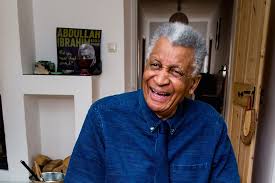

South African Jazz great Abdullah Ibrahim to embark on world tour at age 90
Renowned South African jazz master and pianist, Abdullah Ibrahim, is set to embark on an unprecedented world tour to celebrate...


Kenya unveils ‘killer-squad’ for Paris Olympics marathon Ahead of the 2024 Paris Olympic
Ahead of the 2024 Paris Olympic Games kicking off in July, Kenya has unveiled a “killer-squad” for the marathon event....
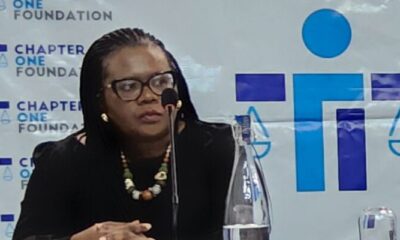

Civil society group says planned online regulation under IBA Act, an affront on media freedom (Video)
Chapter One Foundation Executive Director, Linda Kasonde, says the planned online regulation under the new Independent Broadcasting Authority (IBA) Act...


Clergyman raises concern over abuses associated with digital rights and freedom of expression
Emmanuel Kalulu, a clergy member from the Brethren Christ Church in Choma, has expressed concerns about the misuse of media...


Nigeria’s Dangote refinery set to get valid operating licence
The Nigerian government has revealed that the 650,000 barrels per day Dangote Petroleum Refinery will soon receive a full operating...
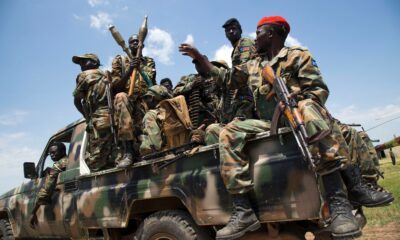

US wants UAE, others to cease support for Sudan’s warring parties
The United States wants all countries, including the United Arab Emirates, to stop helping the warring sides in Sudan, the...
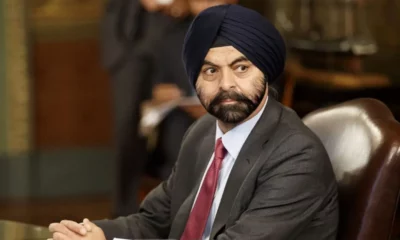

W’Bank chief Banga expects rich nations to meet Africa’s donation expectations
Ajay Banga, President of the World Bank, has said that he thinks donor countries will follow through on African leaders’...


Kenya: President Ruto assured of fresh IMF disbursement
This would help the economy, which is getting better after avoiding a debt problem earlier this year. Since the government...


In 30 years, half of Nigerian biscuit companies went out of business— Manufacturers
The Manufacturers Association of Nigeria has claimed that in the last 30 years, half of the companies in the biscuit...
Trending
-

 Tech1 day ago
Tech1 day agoVillage Capital partners Norad to launch climate-focused programme in Africa
-
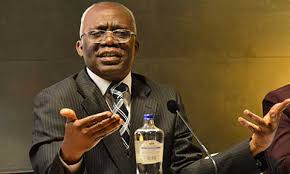
 Metro2 days ago
Metro2 days agoNigeria: Human rights lawyer accuses govt of acting World Bank, IMF script on electricity tariffs hike
-

 Culture2 days ago
Culture2 days agoWizkid, Davido’s online battle gets nasty as they exchange ‘dirty’ tweets
-

 Sports2 days ago
Sports2 days agoCameroon’s boxing icon Francis Ngannou loses 15-month-old son


